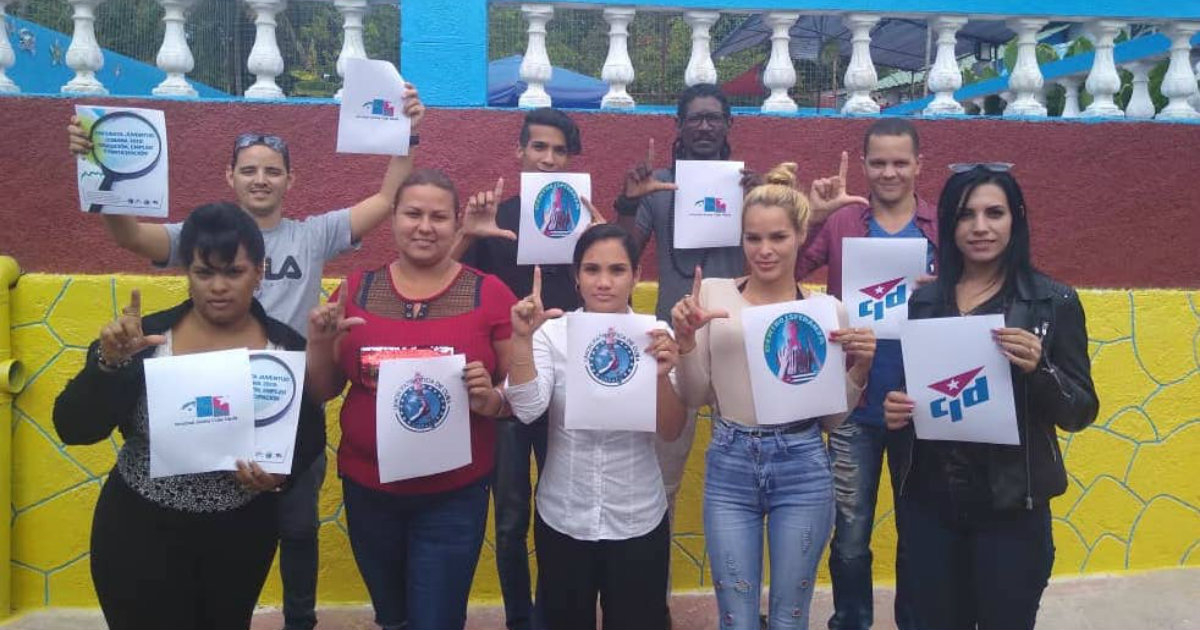
A group of young Cubans from various provinces of the country participated in Havana in the presentation of the independent report "A Perspective from Cuban Youth: Education, Employment, and Participation."
The document, the result of the work of activists from the Centro Esperanza Social Platform (CE), the Independent and Democratic Cuba Movement (CID), the Active Youth United Cuba Social Platform (JACU), and the Patriotic Union of Cuba (UNPACU), contains information about the challenges and obstacles faced by Cuban youth, particularly those who are part of the dissident movement.
According to Kirenia Flores, a member of JACU, this report identifies the sectors where young opposition members are most affected. Consequently, education, employment, and youth participation in society stand out.
The document submitted in the Cuban capital identifies 21 young individuals who have been repeatedly victimized in a total of 49 cases of human rights violations between 2016 and 2019.
For his part, Iván Torres, executive director of JACU, highlighted that in the island, the freedoms and rights of young people are restricted.
"Those who attempt to express their opinions, organize meetings, or form organizations that oppose the goals of the socialist state are subjected to detention and interrogation, are restricted in their freedom of movement, and at times, are arbitrarily dismissed from their schools and jobs," he emphasized.
Regarding education, it is noted that even though it is a right protected by the Constitution for all Cubans to access it, "those who are not supporters of the government are excluded," Torres mentioned.
It was reported that opponents or their children do not have access to education in the same manner as those who are considered supporters of the ruling regime on the island. Additionally, it was noted that once university students complete their academic studies, they are assigned to work in state institutions as part of mandatory social service, "or else they risk losing their academic degree."
Regarding employment, although the private sector on the island has gained significant prominence in recent years, the State remains the primary employer and controller of the country's labor market. Participants in the presentation of this independent report learned that young people do not always have access to jobs that align with their interests, needs, and demands.
Since this sector is almost entirely controlled by the State, there is a possibility of "violating workers' rights through arbitrary and discriminatory dismissals for political reasons," it is noted.
Arianna Ávila, an activist from UNPACU, expressed that "if young people want to exercise their rights to associate or to create independent organizations outside of the Young Communist Union (UJC), they will not be recognized by the State." This ultimately leads to repressive measures taken by Cuban authorities against those deemed a threat to the country's security.
Recently, the youngest member of the Ladies in White, Sissi Abascal, shared with American media how, as a government opponent in Cuba, she has been denied access to quality education.
"I was at school, but it felt like I was an unwelcome person," Sissi recounted about the time she spent trying to finish twelfth grade at night.
Other young Cubans have been prevented from actively participating in the political and social life of the country. They have been barred from leaving the island to attend international events and courses, interrogated and intimidated by State Security agents, and have even been repeatedly detained after participating in demonstrations.
Filed under: